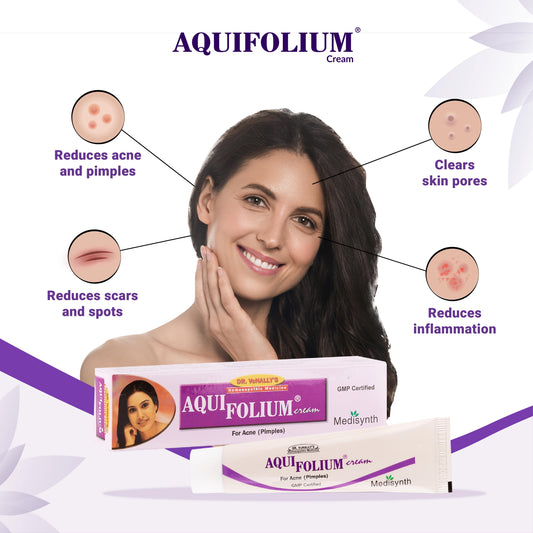The Most Effective Homeopathic Treatments for Ringworm

Many people experience ringworm, a fungal skin infection that appears as itchy, red patches. This infection can affect individuals of all ages and genders.
We have seen that people choose the allopathy route to treat these ringworms or other fungal skin infections. Still, to cure these infections completely, you must select the homoeopathy route.
homeopathy for ringworm offers a holistic approach to healing, aiming to address the underlying causes of skin issues rather than just treating the symptoms.
This article will explore effective homoeopathic treatments for ringworm and other fungal skin infections, delving into the principles behind homoeopathy and the remedies that have shown promise in alleviating these common dermatological concerns.
Understanding Ringworm and Fungal Skin Infections
Ringworm, also known as tinea corporis, is a type of fungal infection that affects the skin. Despite its name, it is not caused by a worm, but by a group of fungi called dermatophytes, which thrive on keratin, a protein found in the skin, hair, and nails.
Ringworm is highly contagious and can be spread through direct contact with an infected person, animal, or contaminated objects. It often causes circular, red, and scaly patches on the skin, with a raised border, giving it the characteristic ring-like appearance.
Fungal skin infections, including ringworm, are common and can affect anyone. They can occur in various parts of the body, including the scalp, feet, nails, and groin, and are commonly known by different names based on their location, such as athlete's foot (tinea pedis), jock itch (tinea cruris), and nail fungus (onychomycosis).
The symptoms of ringworm and other fungal infections may vary depending on the location and severity of the infection, but common signs include:
-
Itchy, red, circular patches with raised, scaly edges (the hallmark of ringworm).
-
Clear centers within the ring-like patches.
-
Cracked or peeling skin in the infected area.
-
Blisters or pustules in severe cases.
-
Hair loss or bald spots (if the scalp is affected).
-
Thickened, discolored nails (if nails are infected).
For infections like athlete’s foot, the symptoms may include scaling, redness, burning, and cracking between the toes or on the soles of the feet.
Types of Fungal Skin Infections:
Ringoment Anti-Fungal Cream
-
Ringworm (Tinea Corporis): Affects the body and typically presents as a circular, scaly rash.
-
Athlete’s Foot (Tinea Pedis): Affects the feet, often causing itching, burning, and peeling, especially between the toes.
-
Jock Itch (Tinea Cruris): Affects the groin area, often causing itching, redness, and a rash with defined borders.
-
Scalp Ringworm (Tinea Capitis): Affects the scalp and can lead to hair loss, scaling, and red patches.
-
Nail Fungus (Onychomycosis): Affects the nails, causing thickening, discoloration, and brittleness.
-
Tinea Versicolor: A fungal infection that causes light or dark patches of skin, often on the chest, back, or shoulders.
How to treat Ringworm using Homoeopathy
Homoeopathy is based on the principle of "like cures like," where highly diluted (potentised) substances that produce symptoms similar to the ailment are used to stimulate the body's natural healing response.
This is also the reason many individuals, after trying allopathy for a long time without results, turn to homoeopathy to treat these infections from the root.
Here are the best homoeopathic remedies in the treatment of ringworm:
1. Syzygium Jambolanum (Jambul)
-
This remedy is often used for skin disorders, particularly infections due to diabetes. It helps manage itching and inflammation.
-
It is beneficial when the skin is inflamed, itchy, and red, which are common symptoms of ringworm.
2. Calendula Officinalis (Marigold)
-
Calendula is known for its skin-healing properties and is often used for treating wounds, burns, and skin infections.
-
It helps soothe irritated skin, promotes healing, and prevents secondary infections. It’s especially helpful if the skin is inflamed, or painful.
3. Hamamelis Virginica (Witch Hazel)
-
Known for its anti-inflammatory, astringent, and soothing properties.
-
It can reduce inflammation, soothe itching, and thus help to treat the fungal infection.
4. Echinacea Angustifolia (Echinacea)
-
This herb is renowned for boosting the immune system and fighting infections.
-
Echinacea helps enhance the body's natural defenses against fungal infections & thus reducing irritation and redness. It also acts as an antiseptic agent.
5. Azadirachta Indica (Neem)
-
Neem has antifungal, antibacterial, and anti-inflammatory properties.
-
Neem is effective in killing fungal spores, reducing inflammation, and soothing itching. It also helps prevent the spread of the infection.
6. Chrysarobinum (Chrysarobin)
-
Chrysarobinum is used for chronic skin conditions, particularly fungal infections and inflammation.
-
It is particularly helpful for ringworm with violent itching especially of thighs, legs & ears.
Homoeopathic for Ringworm and Fungal Skin Infections
As we mentioned earlier, homeopathic medicines for ringworm have proven effective in treating ringworm and other fungal skin infections, and it is worth noting that the best homeopathic medicine for ringworm, you can take are from Medisynth. They have a popular product named "Ringoment Antifungal Cream," specifically designed to treat ringworm and other fungal infections on the skin. Medisynth's Ringoment Antifungal Cream helps treat many types of skin infections, such as athlete's foot, jock itch, and barber's itch. Medisynth's Ringoment contains ingredients such as:
-
Syzygium Jambolanum
-
Calendula Officinalis
-
Hamamelis Virginica
-
Echinacea Angustifolia
-
Azadirachta Indica
-
Chrysarobinum
Prevention Tips
Ringworm and other fungal skin infections are contagious, so you need to avoid catching them from someone in the first place and not spread them to others.
-
Maintain good hygiene: Regularly wash your hands and body with soap and water, especially after engaging in activities that involve contact with potentially contaminated surfaces or individuals.
-
Keep your skin clean and dry: Fungi thrive in warm, moist environments, so it's essential to keep your skin dry, especially in areas prone to sweating, such as the armpits, groin, and feet. Dry thoroughly after bathing or swimming, and use talcum or antifungal powders in areas susceptible to moisture buildup.
-
Avoid sharing personal items: Fungal infections can spread through contact with infected individuals or indirect contact through contaminated items like towels, clothing, and sports equipment. Avoid sharing personal items, and ensure that communal items in gyms and locker rooms are adequately sanitized.
-
Wear loose, breathable clothing. Tight-fitting clothing can trap moisture against the skin, creating an ideal environment for fungal growth. Opt for loose, breathable fabrics like cotton, and avoid wearing wet or sweaty clothing for prolonged periods.
-
Protect your feet in common areas: Wear flip-flops or sandals in common showers, locker rooms, and pool areas to reduce your risk of coming into contact with fungal spores that may be present on the floor.
-
Practice proper foot hygiene: Keep your feet clean and dry, particularly the spaces between your toes where moisture can accumulate. Wear clean socks made of moisture-wicking materials and change them daily, especially if your feet tend to sweat excessively.
-
Avoid walking barefoot in public places: Fungal spores can linger on floors and surfaces in public areas like swimming pools, saunas, and changing rooms. Wear shoes or protective footwear to minimize exposure to these potential sources of infection.
-
Be mindful of pets: Some animals, particularly cats and dogs, can carry fungal infections like ringworm. If you have pets, ensure they receive regular veterinary care and promptly treat any signs of skin infection or irritation.
-
Boost your immune system: A robust immune system can help defend against fungal infections. Maintain a healthy lifestyle by eating a balanced diet, exercising regularly, managing stress, and getting adequate sleep.
All the things that you did during COVID-19 were not only meant for that time but need to be followed regularly as well because it is not the only virus that is around you; there are millions of viruses that you can catch, so maintaining proper hygiene routine at all times is utmost important.
Conclusion
In conclusion, it is to be understood that skin conditions such as ringworm or other fungal infections need to be taken care of promptly; otherwise, they can spread more and cause trouble in more parts of the body.Also, a proper skincare routine and hygiene must be maintained to treat ringworm or other fungal skin infections in conjunction with homeopathic medicinal treatments such as Medisynth's Ringoment ointment or other remedies.With proper care, attention to hygiene, and guidance from qualified healthcare providers, you can effectively manage these common dermatological concerns and enjoy healthy, unblemished skin, just like you need
Reference
-
Boericke's Materia Medica with Repertory









